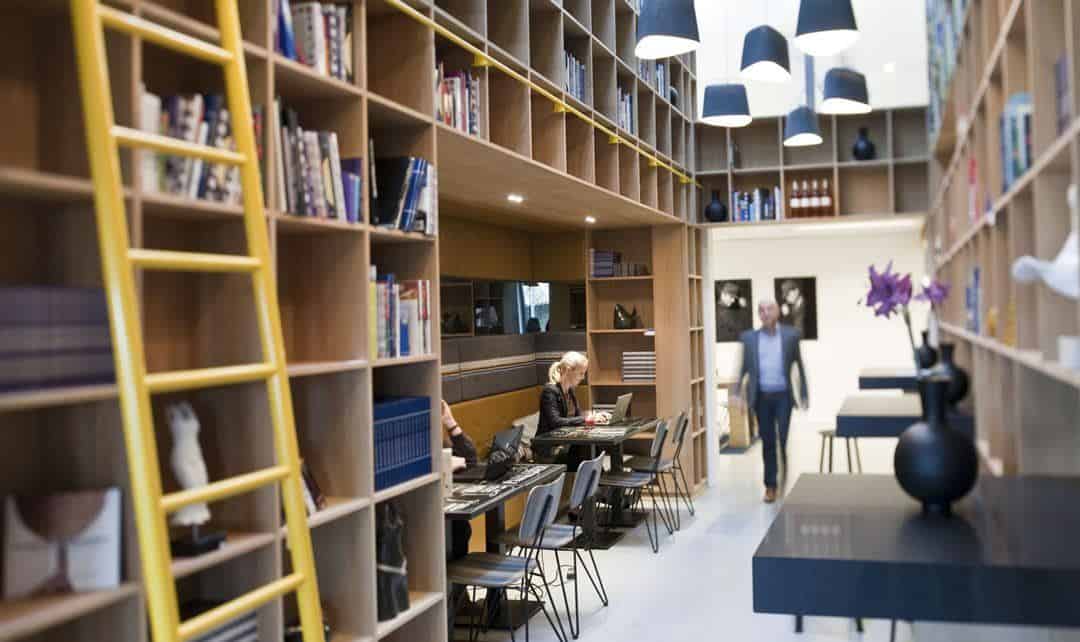The following is sponsored, promotional content. This content is not written by and does not necessarily reflect the views of REM.
In recent years, disruptive forces have transformed how we think about entire industries. Spotify with music. Uber or Lyft with transport. Netflix with television programmes and films. Technology has changed the way that we think about things that we used to take for granted.
Slowly but surely the way in which we think about offices, and how we work, and productivity, has been changing too. We are now approaching a tipping point – and the results of this will transform the working experience for millions of people. For smart businesses, this is a revolution that will create competitive advantage, cut costs and help attract and retain talent.
What has got us to this point?
First, the rapid acceleration of technology has changed what’s possible. Within two years, 80 per cent of the world’s population will own a smartphone. The cloud has grown exponentially. Put simply, it’s now increasingly easy for a person to plug in and work from anywhere.
Second, workers are aware of this – particularly those digital native millennials who have grown up with this technology and whose expectations are less shackled by what was possible before. They know they can work anywhere, and they know that throughout their careers they will be expected to work hard. This means that they appreciate flexibility. Why should they commute for two hours each day? They want to work for a business within which they can experience the benefits of a collaborative community, without wasting hours of their day.
Third, businesses are increasingly aware of this and they know that a smart strategy on flexible working can help them to secure the best talent. That’s an advantage in a competitive world. But what businesses also increasingly understand are the financial and strategic advantages a flexible workspace strategy brings. A flexible workspace approach cuts real estate costs and allows businesses to concentrate on their core business, rather than being forced into also becoming a real estate business.
With the right partner, this workspace revolution will bring benefits to smart businesses of all sizes. For start-ups the benefits are immediate. An entrepreneur wants to focus on growing their business, not spending time and money on real estate leases. But they can’t compromise on those things that are expected of every professional business – best-in-class IT, security, telecommunications capabilities. Even as a fledgling business they want to have a base where they can bring employees, potential customers and partners for meetings without letting down their brand.
The benefits to larger businesses are also now increasingly recognised – and in fact many of the world’s most innovative business success stories have a dedicated flexible workspace strategy. Of course, large corporations have a requirement for a large, dedicated HQ, but by complementing this with a flexible workspace partner they can drive real benefits to their business. A business can move people into a new market quickly and take them out again when required. They can put their people close to their suppliers. They can do all of this without committing to long leases and expensive relocation costs.
Employee wellbeing and personal satisfaction will increase, and in today’s battle for top talent that means a huge amount. Fewer hours spent commuting, greater independence and flexibility means more productive workers.
In fact, employees are likely to become more creative – driving more innovations for your business. Why? Because one of the enemies of corporate innovation is groupthink. Having all of your people under one roof, having the same conversations with the same people day after day might be stifling the potential of them generating original ideas. Putting them into a collaborative space with like-minded businesses and people can help free up their thinking. Happy, more creative employees can only be good for a business.
A ‘one-size fits all’ approach wouldn’t work for any aspect of a successful large business. For too long, however, this is exactly the approach most businesses have taken for their offices. This has happened because most people didn’t see any alternative. Just as a decade ago there was no alternative to CDs. Then Spotify came along.
The workspace revolution is coming. Smart businesses are planning for it now.
With a range of office formats, as well as growing mobile, virtual office, and workplace recovery businesses, Regus is the world’s largest provider of flexible workspaces. Customers include successful entrepreneurs, individuals and multi-billion-dollar corporations. To find out more, visit regus.ca
















